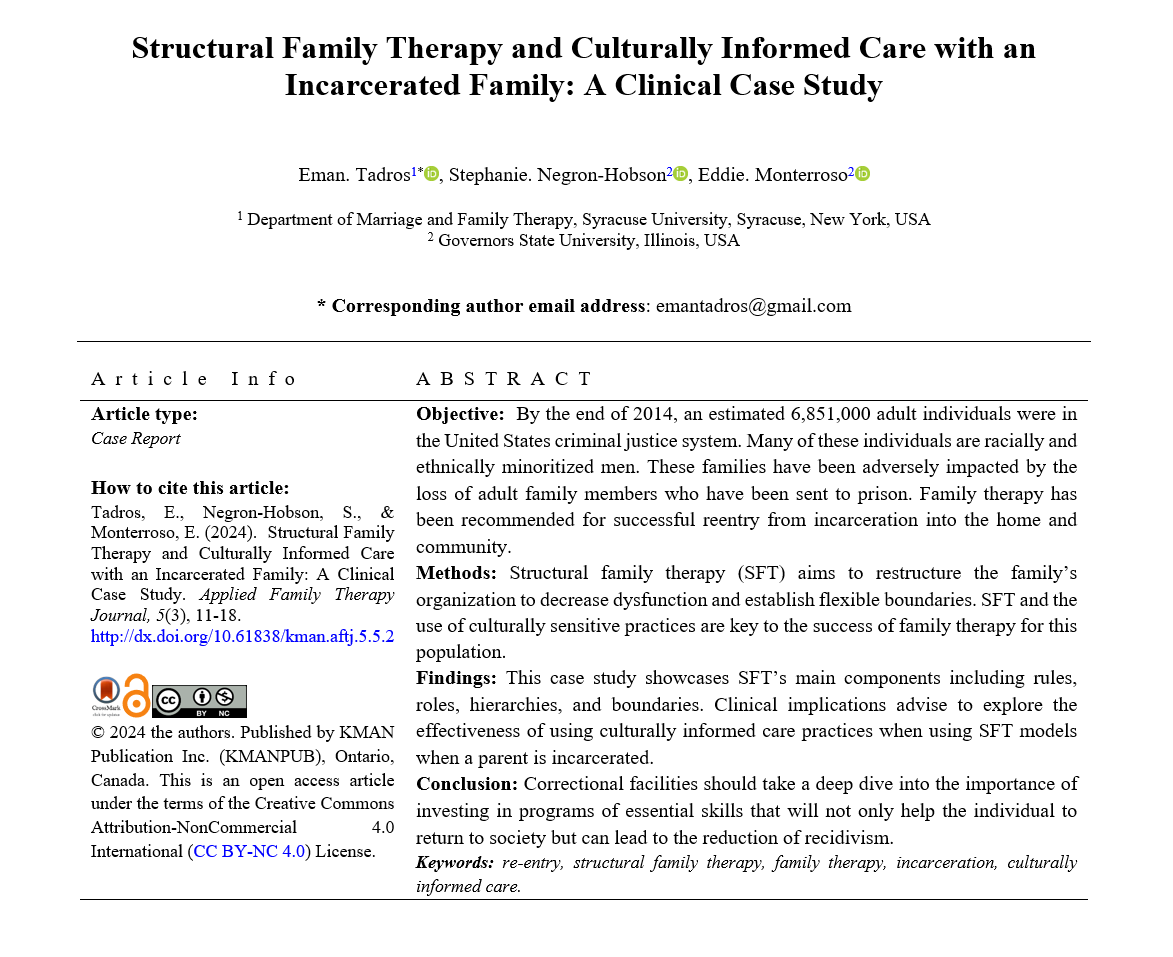Structural Family Therapy and Culturally Informed Care with an Incarcerated Family: A Clinical Case Study
Keywords:
re-entry, structural family therapy, family therapy, incarceration, culturally informed careAbstract
Objective: By the end of 2014, an estimated 6,851,000 adult individuals were in the United States criminal justice system. Many of these individuals are racially and ethnically minoritized men. These families have been adversely impacted by the loss of adult family members who have been sent to prison. Family therapy has been recommended for successful reentry from incarceration into the home and community.
Methods: Structural family therapy (SFT) aims to restructure the family’s organization to decrease dysfunction and establish flexible boundaries. SFT and the use of culturally sensitive practices are key to the success of family therapy for this population.
Findings: This case study showcases SFT’s main components including rules, roles, hierarchies, and boundaries. Clinical implications advise to explore the effectiveness of using culturally informed care practices when using SFT models when a parent is incarcerated.
Conclusion: Correctional facilities should take a deep dive into the importance of investing in programs of essential skills that will not only help the individual to return to society but can lead to the reduction of recidivism.
Downloads

Downloads
Additional Files
Published
Submitted
Revised
Accepted
Issue
Section
License
Copyright (c) 2024 Eman Tadros, Stephanie Negron-Hobson, Eddie Monterroso (Author)

This work is licensed under a Creative Commons Attribution-NonCommercial 4.0 International License.




















